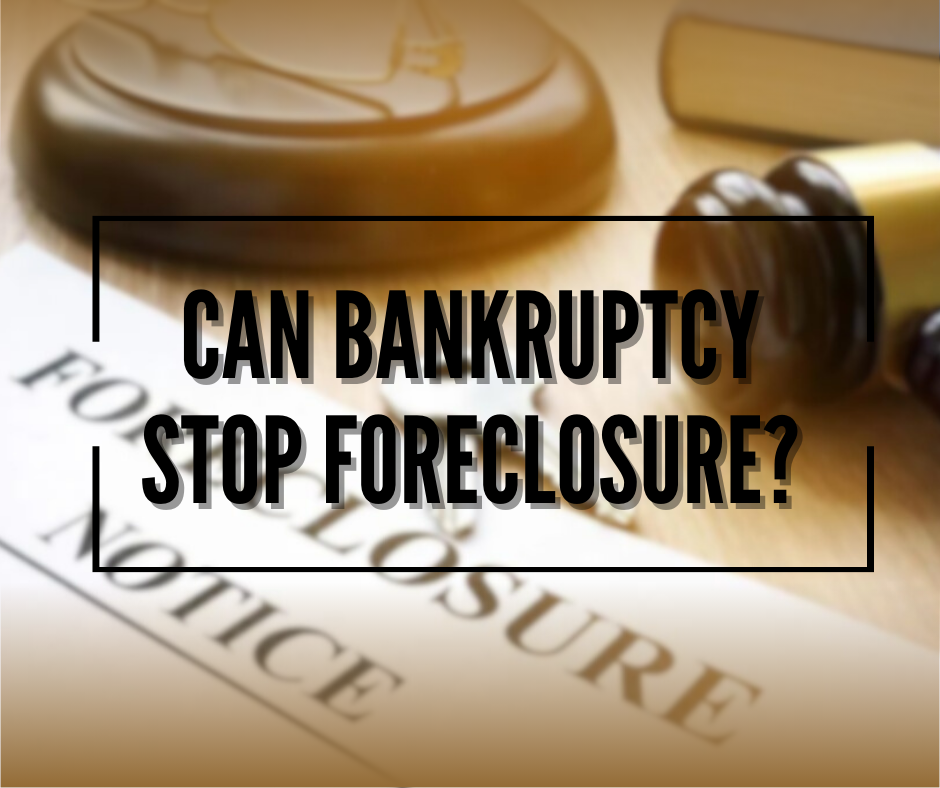Introduction
Foreclosure is a word that strikes fear into the hearts of homeowners across the country. It’s a legal process that can result in the loss of one’s home, often due to unpaid mortgage debts or other financial hardships.In this article, we’ll explore whether and how bankruptcy can stop foreclosure, shedding light on the different bankruptcy options, eligibility requirements, and the crucial role of timing in this process.
Understanding Foreclosure
What is foreclosure? It typically involves a series of legal steps, with the ultimate goal of recovering the outstanding debt.
Understanding this process is crucial for homeowners facing potential foreclosure.
Consequences of foreclosure Foreclosure can have significant consequences, including damage to credit scores, eviction from the property, and the loss of one’s home and equity. It’s essential to explore all available options to avoid or mitigate these consequences.
Types of Bankruptcy
It can provide temporary relief from foreclosure through an automatic stay, which halts collection actions, including foreclosure proceedings.
This plan may include mortgage arrearages, providing a way to catch up on missed mortgage payments.
Differences between Chapter 7 and Chapter 13 Chapter 7 and Chapter 13 have distinct characteristics and eligibility requirements. Understanding these differences is essential when considering bankruptcy as a foreclosure prevention strategy.
Can Bankruptcy Stop Foreclosure?
How Chapter 7 bankruptcy affects foreclosure Chapter 7 bankruptcy can temporarily halt foreclosure through an automatic stay.
How Chapter 13 bankruptcy affects foreclosure Chapter 13 bankruptcy provides a structured plan for catching up on missed mortgage payments over time, making it a more robust option for homeowners seeking to prevent foreclosure and keep their homes.
Eligibility and Requirements
Eligibility criteria for Chapter 7 bankruptcy To file for Chapter 7 bankruptcy, individuals must meet specific income and financial criteria. These criteria ensure that those who genuinely cannot repay their debts are eligible for debt discharge.
Meeting these requirements is essential for pursuing a Chapter 13 plan to stop foreclosure.
Meeting the requirements Consulting with a bankruptcy attorney can help individuals determine their eligibility and navigate the bankruptcy process effectively.
The Bankruptcy Process
Steps involved in filing for bankruptcy Filing for bankruptcy involves several steps, including gathering financial documents, attending credit counseling, submitting a bankruptcy petition, and participating in a creditors’ meeting.
Timeline and duration of bankruptcy Understanding the timeline of bankruptcy is crucial, as it can impact the effectiveness of using bankruptcy to halt foreclosure.
Working with an attorney Many homeowners find it beneficial to work with an experienced bankruptcy attorney who can guide them through the complex process and ensure all requirements are met.
The Importance of Timing
When to consider bankruptcy in relation to foreclosure Timing is critical when using bankruptcy to stop foreclosure. Acting promptly when facing foreclosure is essential to maximize its effectiveness.
Potential challenges with late-stage foreclosure If foreclosure is imminent, there may be limitations to what bankruptcy can achieve. Early intervention is key to addressing mortgage arrearages effectively.
Alternatives to Bankruptcy
Short sales and deed in lieu of foreclosure In some cases, homeowners may choose to sell their homes through a short sale or transfer the property through a deed in lieu of foreclosure to avoid the legal and financial consequences of foreclosure.
Pros and Cons of Bankruptcy to Stop Foreclosure
Advantages of using bankruptcy Bankruptcy can offer immediate relief through the automatic stay, potential discharge of unsecured debts, and structured repayment plans for secured debts like mortgages.
Potential disadvantages and consequences Bankruptcy is not without its drawbacks, including the impact on credit scores, the potential loss of assets, and the need to meet strict eligibility requirements.
Seeking Professional Advice
The importance of consulting with a bankruptcy attorney Considering the complexity of bankruptcy laws and their impact on foreclosure, consulting with an experienced bankruptcy attorney is strongly recommended for homeowners facing foreclosure.
Conclusion
In conclusion, while bankruptcy can be a powerful tool to stop foreclosure and protect your home, it’s not a one-size-fits-all solution. Understanding the nuances of Chapter 7 and Chapter 13 bankruptcy, eligibility requirements, and the importance of timing are essential when considering bankruptcy as a foreclosure prevention strategy. Whether bankruptcy is the right path or not, taking action early is key to securing your home and financial future.
(FAQs) about bankruptcy and foreclosure, along with their answers:
1. Can bankruptcy stop foreclosure immediately?
- Answer: Yes, filing for bankruptcy, specifically under Chapter 7 or Chapter 13, can trigger an automatic stay. This stay halts foreclosure proceedings temporarily.
2. Do I need to be completely broke to file for bankruptcy to stop foreclosure?
- Answer: No, you don’t need to be entirely destitute to file for bankruptcy. Eligibility for Chapter 7 or Chapter 13 bankruptcy is determined based on your income, expenses, and overall financial situation. While financial hardship is a common reason for filing, bankruptcy laws are designed to help individuals with various income levels address their debts and, in some cases, prevent foreclosure.
3. Can I keep my home if I file for bankruptcy to stop foreclosure?
- Answer: Whether you can keep your home after filing for bankruptcy depends on several factors, including the type of bankruptcy you choose (Chapter 7 or Chapter 13), your ability to make mortgage payments, and the equity in your home. Chapter 13 bankruptcy provides a structured way to catch up on missed mortgage payments and keep your home, while Chapter 7 may involve the sale of non-exempt assets to pay off debts.
4. Will bankruptcy impact my credit score and ability to get a loan in the future?
- Answer: Yes, bankruptcy will negatively impact your credit score, and it will remain on your credit report for several years. However, it’s not a permanent scar on your credit history. With responsible financial management and time, you can rebuild your credit score and become eligible for loans in the future. Many individuals are able to obtain credit again within a few years after bankruptcy.
5. What if I’m already in the late stages of foreclosure? Is bankruptcy still an option?
- Answer: Bankruptcy can still be an option if you’re in the late stages of foreclosure, but the effectiveness of bankruptcy may be reduced. Acting promptly is crucial. Chapter 13 bankruptcy, in particular, can be useful for catching up on missed mortgage payments. However, consult with a bankruptcy attorney as soon as possible to assess your specific situation and explore all available options. Late-stage foreclosure can limit your choices, so early intervention is advisable.

